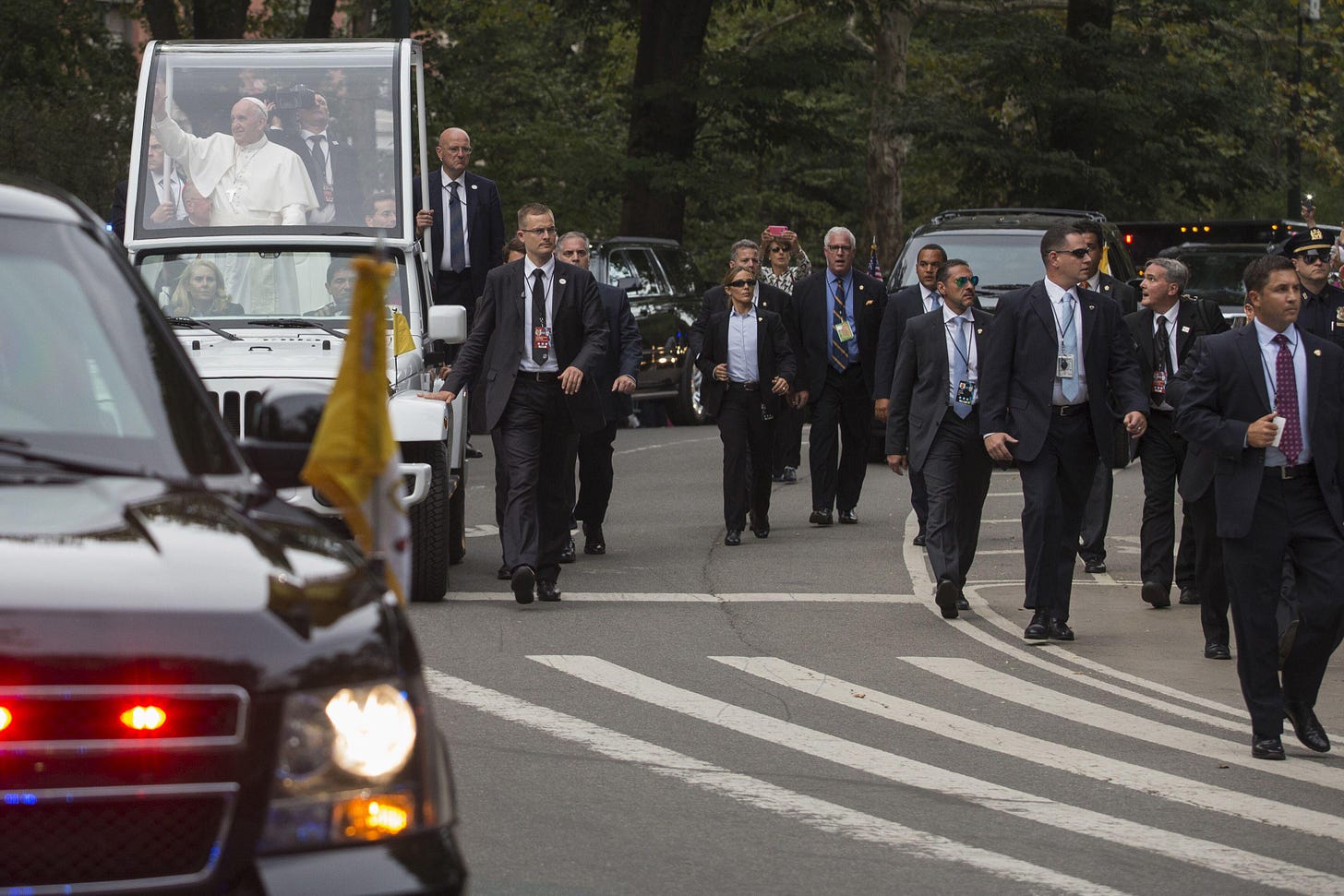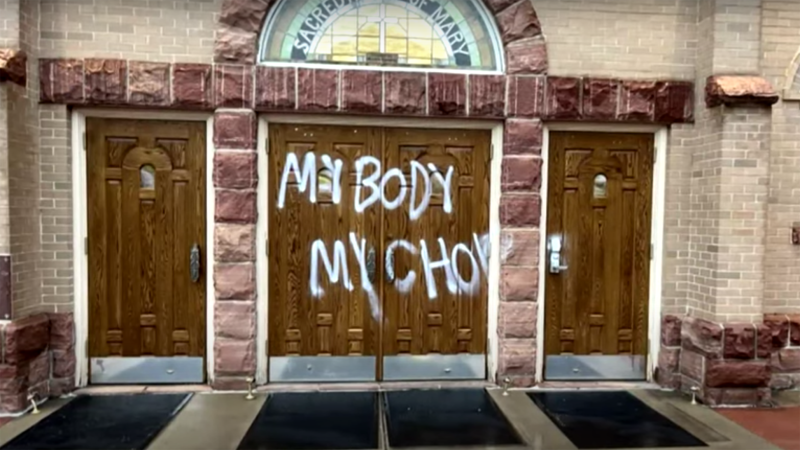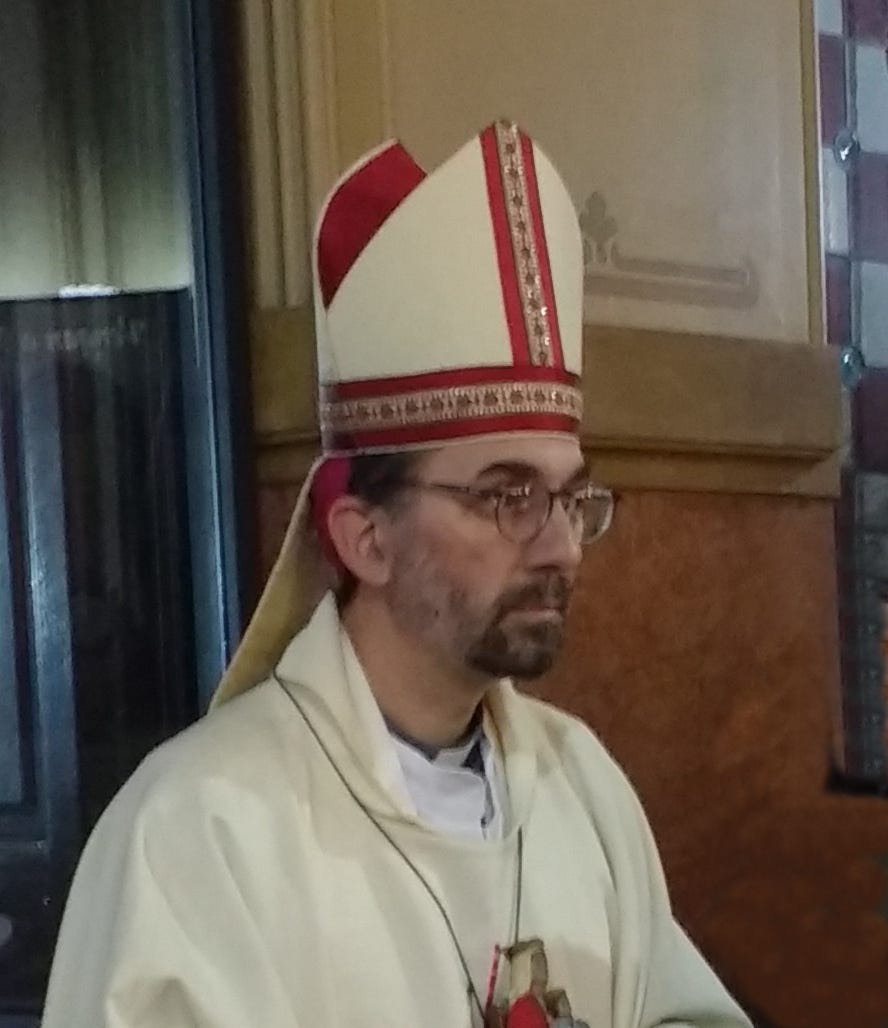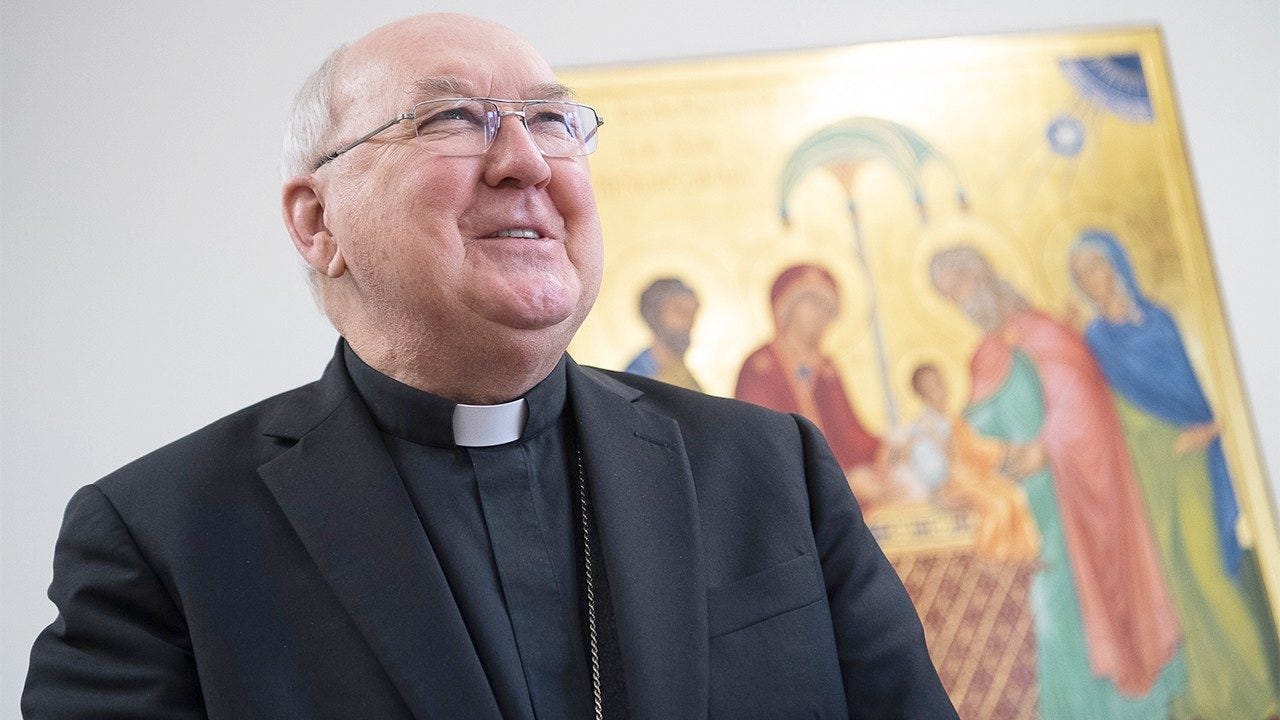With the prospect that Roe v. Wade might soon be overturned, protestors demonstrated outside of some Catholic cathedrals and parishes last weekend.
Other parishes were vandalized over the Church’s opposition to abortion, and a parish in Texas saw its tabernacle stolen - though it is not proven whether that act was related to abortion activism.
Pro-abortion groups have said they will continue demonstrating at Catholic parishes in the weeks to come, which means that some pastors are thinking about how best to prepare, or how to respond.
The Pillar spoke this week with Bob Casar of Crossed Keys Consulting - a security consulting firm for parishes and schools - about how pastors and parishioners can prepare for protests, disruptions, or other unexpected situations at their parishes.
Casar has been a security consultant for retail, restaurant, non-profit, and other industries for more than two decades, and aims to blend his faith with his security expertise.
This interview has been edited for length and clarity.
We saw last weekend that some cathedrals and parishes had Masses interrupted, had protestors outside, were vandalized, and a parish in Texas saw its tabernacle stolen. As tension over Roe v. Wade continues, these kinds of things may well continue at parishes.
What are the security needs that you think parishes and cathedrals need to be thinking about?
First and foremost, what we see is an awareness gap.
There’s often this reluctance to acknowledge the risks that we have in our parishes. And an unconscious, or perhaps conscious, bias that this is a problem that’s reserved for the cathedral downtown, or the National Basilica, or our inner city parishes. And that’s certainly not the case. So I think first we need to acknowledge risks, and then we can move and develop a program that is holistic.
The church itself is going to be the likeliest place for some kind of public protest, or where people might come in and disrupt the Mass.
But there are other questions at a parish: How are we securing the parish office? How are we securing our rectories? Where I live, here in the Diocese of Cleveland, a few years ago, we had a parish priest that was shot multiple times in the yard outside his rectory — he keeps chickens in the backyard and he was going out to collect eggs.
How are we prepared for things like that?
I talk sometimes about a “cycle of protection” in a parish.
What I mean is that everybody in the parish has a role to play. And that obviously starts with the pastor - nothing gets done without his blessing. But it goes to the people in the pews.
If, heaven forbid, something happened during Mass, how would people respond? Would they know how to respond? You know - we don’t do fire drills before Sunday Mass, so how can we create awareness with folks?
How do we train lectors to keep reading if someone is standing at the back of the church berating them?
I saw a video a few months ago where a priest decided he was going to go toe-to-toe with someone who was heckling him. And then we had guys in the congregation go up and tackle him.
Well, really … if anyone should be good at verbal de-escalation, it should be our priests. So it’s important to learn how to connect the dots, and use the skills they’re already equipped with, and to train them on problems which those skill sets apply to, even if they don’t necessarily know that.
Like you, I have seen videos online where someone comes into a church, or into the sanctuary, and is disruptive, and people in the congregation try to intervene or take control of the situation.
Does that usually make things better? What should parishioners do if someone disrupts the Mass?
You know, in the law enforcement community, people talk about their “everyday carry,” — usually a concealed weapon that they carry on a day-to-day basis. But, really, the most powerful tool that you have in a security situation is your cell phone.
In a security situation, the best thing is if someone is able to discreetly sneak out a side entrance and call first responders to the scene. Hopefully at Mass, Father would be able to keep someone disruptive at bay until professionals arrive on site.
But for most of us, calling in the professionals is the first thing. One thing we talk about at Crossed Keys is for parishioners, or staff and clergy, not to take on a law enforcement role. Things are different in each situation, and sometimes it seems like when seconds count, the police are still minutes away. But to stay calm, to sneak out a side door, to call the police, to provide a good description of who’s there and what’s going on, that can make a difference.
Someone who is completely panicked will complicate the scene. But even to know ahead of time that in a security situation at Mass, that someone in the choir loft should sneak right behind and make a phone call — we can think strategically like that with what we already have available to us.

Many cathedrals saw people last weekend protesting outside of the church; that may continue this weekend and in the weeks to come.
If there are protestors outside his church, what are the top two or three things a pastor should be aware of?
I think first and foremost, a good shepherd knows his sheep — he also needs to know what the wolves look like. If it’s a protest and they’re on the sidewalk with their signs during Mass, probably the best thing to do is to leave them be.
Now if they’re blocking the driveway and people can’t turn in, maybe the best pastoral approach is to say: “Listen guys, I know we’re on different sides here, but my folks are coming in to pray.”
Should that be the pastor or the police? It really depends on making judgments about the situation.
Situational leadership is so important in what we do. If it’s a group of three people out there that’s one thing. If it’s a group of 30 people, and they brought their own bus and the signs are professionally made, and they’ve got their cameras out and everything else, that’s a different thing.
Another tip is that we need to pay attention to any deviation from normal. If we start to see Mass attendance either dramatically up or dramatically down, we could ask ourselves what’s going on - is this because people are scared away? Let’s hope not.
If we start to see that there are more cars than normal entering the parking lot for Mass, we should be aware of that, and see if we can understand why.
If we start to get more phone calls asking about Mass times, or if we start to see more emails coming in, those are red flags that we should be aware of. Unfortunately, we can’t just shrug our shoulders and discount those things.
Finally, when we talk about any security issue, we need to have something holistic - that anticipates a lot of prospective situations.
So often we hear “safety and security,” and our mind immediately goes to an active shooter. In reality, that’s very unlikely to occur.
But a few months ago you wrote about when your daughter went missing from Mass — how do we prepare ourselves for the lost child? How do we prepare ourselves when all the guys at the wedding party show up drunk?
As a consultant, I try to help develop the kind of program that is scalable, because most parishes don’t have a budget for this, and they’re relying on goodwill. Maybe the pastor has a retired police officer who wants to help out with this — that’s a great thing, but how do we plan for when he moves to Florida, or when he’s just not around?
A parish doesn’t necessarily need an investment in a 64 camera security system. But maybe a camera above the doors so we can see who’s coming in and what time. And maybe a sign-in book at the adoration chapel, which, really, can give you a potential witness list of who was around the parish when, and who might have seen something unusual at a particular time.
Think about access control — if the parish is going to be open 24 hours a day, it doesn’t probably need a burglar alarm, but maybe the rectory and the office do.
The goal is to make good plans we can stick with. You know, I can walk into most police stations, in the back door and have access to the whole department, because the keypad code is usually 9-1-1. And in a lot of other places it’s the last four digits of the phone number or it’s the street address.
A lot of things don’t cost a penny. And before you start spending money on the latest and greatest, one goal is to make sure we’re using what we already have as smart as we can.

Security consulting specifically focused on Catholic schools and parishes is a unique venture. How did you get started in this kind of work, and why is it important?
I started Crossed Keys because I saw so many parallels between what I was doing then in the retail world and where I saw our Catholic vulnerabilities, both in terms of churches and schools.
Our teachers and our priests were not hired or ordained to protect things — They were hired to teach. They were ordained to preach. And they don’t necessarily have the requisite skills that that makes them comfortable in some types of situations, whether it’s a mass casualty incident, an active shooter situation, a protest, or even something as simple as how to manage a slip and fall in the parking lot, or a custody dispute between two parents in the principal's office.
I wanted to give them the tools they need to be successful in managing those types of cases until a trained first responder could arrive. And to help them increase their confidence.
I do security consulting in a lot of different commercial environments, but I would love to be able to do that for churches and Catholic schools full-time, because there is such a need, and having good plans can make such a difference when you actually need it.
That’s why I am always available to consult for free with parishes or schools, just to get started, because nobody has a lot of money to throw at this thing, but it is so important.
When you consult for Catholic parishes and organizations, I wonder if you notice a particularly Catholic way to approach the question of security.
If you or I heard gunshots right now, our reaction would be the same. We would be frightened. What we do with that completely changes the outcome and the survivability of the incident. If we take less than a second and say “Come, Holy Spirit,” it centers us.
And it gives the opportunity for what I call an OODA loop - we observe, we orient ourselves, we make a decision, and then we take action. So by grounding ourselves, that right there helps change our response to a situation.
Beyond that, I think we need a message of mercy. We don’t want to have a tragedy on top of a tragedy. We want our churches to be places of comfort, a place where people come when they have nowhere else to go. And some of those people are the ones that historically have the highest risk of becoming a violent offender — people who have reached the end of their rope. And if we do a good job as Catholics, as people of faith, of fostering hope in such people, that might prevent an incident altogether. We need to reach folks on the margin, and be aware of them.
And that’s something that I think we’re uniquely blessed to be able to do.

When I talk to pastors, I usually close my presentations with a picture of Pope Francis, in Central Park, where you can see the pope’s security present. You don’t usually see so many security people present as you can in that photo.
And I usually ask, if this is how we protect the leader of our Church, how do we protect the people of our Church? How do we protect the future of the Church? How do we protect the tabernacle and the sacred things in our Church? That’s what this is all about for me.




